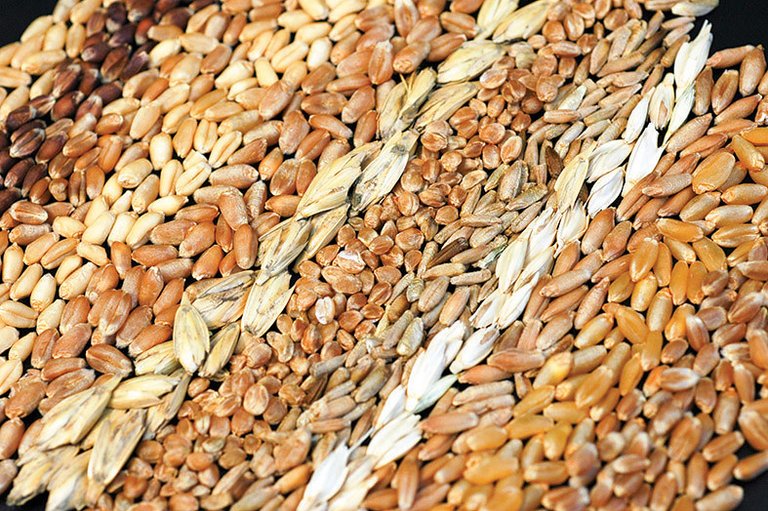The words 'Celiac disease' and 'Gluten Sensitivity' are conditions you might have heard off but then there needs to be clarity to both of these, so let's begin the journey quickly without wasting any more time.
Celiac disease also known as Gluten Sensitive Enteropathy is a common immune inflammatory disease of the small intestine as a result of sensitivity to dietary gluten in people with a genetic predisposition to the protein. To understand what gluten is, let's discuss grains. We can divide grains into two types which are the Cereal Grains, and Non-cereal grains. The cereal grains include Wheat, Barley, Rye, Oat, Rice, Corn and millet, and the non-cereal grains are buckwheat, Quinoa, and Amaranth. The grains that contain gluten are wheat, barley, and rye, and 1% in oats.
1 in 132 children in the United States suffer from celiac disease, and celiac disease which causes the allergy to the protein Glutenin or Gliadin which make up Gluten. According to studies, people with Celiac disease have been said to have type 1 diabetes. People with Celiac disease actually need to feed on gluten-free diets and as such cannot eat food like wheat, barley, and rye. Gluten is what gives the chewy goodness in bread and other gluten food.
Let me say that gluten is not detrimental or essential for our health and there is no evidence that shows that the cutting out gluten from our diet is a healthier choice for the average person. While the average person can consume gluten food people who suffer from celiac disease won't be able to eat gluten at all. When it is consumed, it triggers an immune response that damages the small intestine and if this continues, the body begin to suffer major nutritional deficiency.
Since 2009, the number of gluten-free people has increased, even when they did not have celiac disease either in the past or at present. This condition is known as Non-Celiac Gluten Sensitivity (NCGS) and people can mistake this for Celiac disease. These people can have undiagnosed gastrointestinal troubles like diarrhea, stomach upset and other gastrointestinal troubles after eating Wheat, Rye, or Barley only to start having thoughts that they have celiac disease only to end up testing negative for the auto antibodies that are responsible for Celiac disease.
Wheat contain 6 nuclei and it contain high gluten content. Wheat possesses about 700 proteins that a person can be intolerant to but then they are 2 proteins associated with gluten while the remaining can generate gut immune response and this is why these celiac biomarkers are not found in patients with Non-Celiac Gluten Sensitivity (NCGS). People with Non-Celiac Gluten Sensitivity (NCGS) usually have intolerance with wheat but not with barley, or rye.
The gluten dilemma poses unique challenges, underscoring the importance of accurate diagnosis and tailored dietary measures. As the prevalence of gluten-related conditions continues to influence dietary trends, fostering awareness becomes pivotal in promoting informed choices and compassionate understanding for those navigating the labyrinth of gluten sensitivities.
Reference
https://www.ncbi.nlm.nih.gov/pmc/articles/PMC6182669/
https://www.ncbi.nlm.nih.gov/pmc/articles/PMC10399927/
https://celiac.org/about-celiac-disease/related-conditions/non-celiac-wheat-gluten-sensitivity/
https://www.chop.edu/conditions-diseases/non-celiac-gluten-sensitivity
https://www.niddk.nih.gov/health-information/digestive-diseases/celiac-disease
https://www.nhs.uk/conditions/coeliac-disease/
https://www.niddk.nih.gov/health-information/digestive-diseases/celiac-disease/symptoms-causes
https://www.nhs.uk/conditions/coeliac-disease/treatment/
https://www.acs.org/education/resources/highschool/chemmatters/past-issues/archive-2011-2012/gluten.html
https://www.ncbi.nlm.nih.gov/pmc/articles/PMC5899726/


